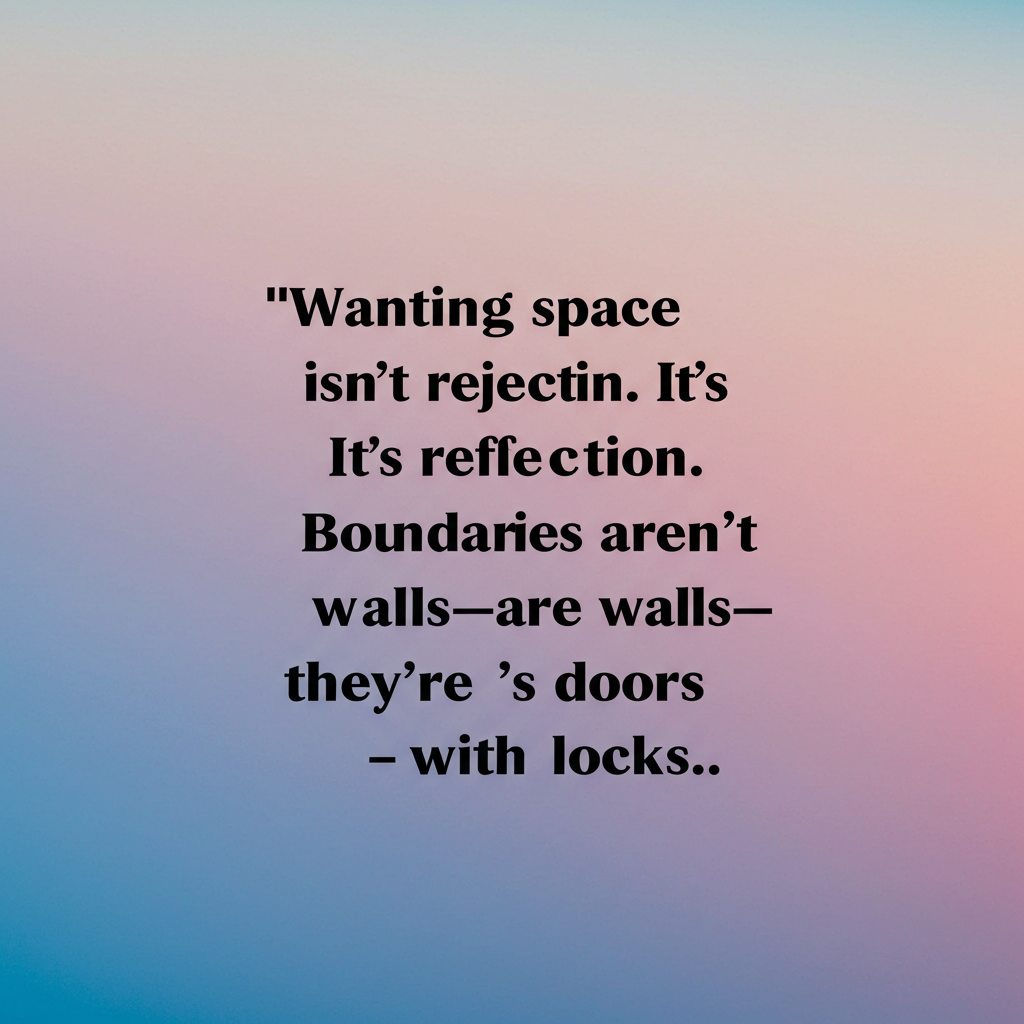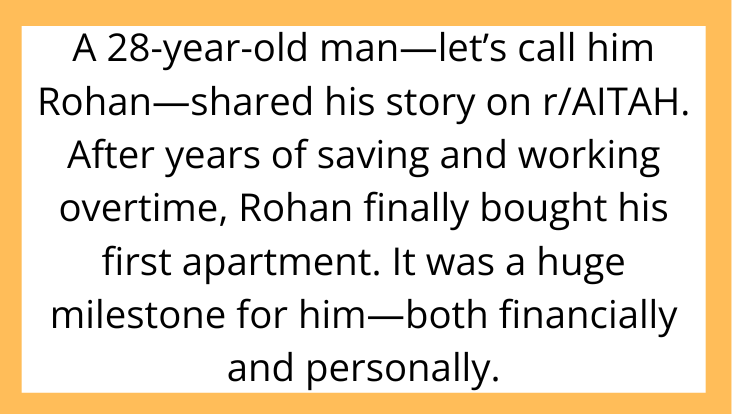AITAH for Not Letting My Girlfriend Move In With Me After I Bought a New Apartment?
When it comes to relationships and real estate, things can get complicated—fast. In this AITAH-inspired situation, a man’s decision to keep his newly purchased apartment to himself has his girlfriend questioning everything. Is he being protective of his space and investment, or is he shutting her out of his life?
Let’s break down this surprisingly relatable dilemma.
The Backstory: A Solo Investment, A Shared Relationship

A 28-year-old man—let’s call him Rohan—shared his story on r/AITAH. After years of saving and working overtime, Rohan finally bought his first apartment. It was a huge milestone for him—both financially and personally.
Rohan’s girlfriend, Neha, 27, had been with him for two years. While they weren’t living together yet, they often stayed over at each other’s places and had talked casually about the future.
When Neha found out about the new apartment, she was thrilled—until she realized Rohan hadn’t intended for her to move in.
The Conflict: A House Divided

Neha assumed that this new apartment meant they’d be taking the next step as a couple. She began making comments about furniture, decorating ideas, and how she’d organize the kitchen.
That’s when Rohan told her—gently, he claims—that he bought the place for himself, not for them. He wanted to live alone for a while, enjoy his own space, and make sure the investment was protected before making any major decisions.
Neha was devastated. She accused Rohan of leading her on, making her feel excluded, and treating their relationship like a casual fling instead of a serious commitment.
Feeling confused and guilty, Rohan turned to Reddit: AITAH for not letting my girlfriend move in after buying a new apartment?
The Arguments on Both Sides

Why Rohan Might Be Right
Rohan worked hard and made a significant financial commitment. Wanting to protect that investment and enjoy personal space is a valid desire. He didn’t promise Neha a shared home, and he was honest about his intentions from the beginning.
Cohabitation is a major step. If he’s not ready, shouldn’t he be allowed to wait?
Plus, legal and financial implications—like tenancy rights, shared expenses, and future breakups—are very real concerns.
Why Neha Feels Betrayed
From Neha’s point of view, two years of dating isn’t casual. They’d been talking about the future, and she saw this apartment as the next step. His decision felt like a betrayal—especially since she found out after the fact.
She may be wondering: If not now, then when? If he doesn’t want to live together now, is he even serious about us?
In her mind, this wasn’t about real estate—it was about rejection.
Reddit Responds: Who’s the Real Villain?

The AITAH community had strong opinions. Most sided with Rohan, praising his independence and caution.
“You’re not a villain for wanting your own space,” one top comment read. “Living together should be a joint decision, not something assumed.”
Another added, “Neha’s reaction is understandable, but she doesn’t get to make demands about your property.”
However, a few Redditors also expressed concern about the communication between the couple.
“If you talked about moving in together in the past and she had every reason to believe it was coming, your choice not to invite her might feel like a rejection,” one user wrote.
The verdict: Rohan isn’t a villain, but a little more clarity early on could have spared a lot of pain.
Relationships and Real Estate: Where Lines Get Blurry

Buying a home is deeply personal—but so is sharing your life with someone. In modern relationships, timelines vary. Some couples move in after six months; others wait five years or longer.
But when one partner makes a major decision without involving the other, it’s easy for feelings of exclusion to creep in.
Here’s what this scenario teaches us:
-
Owning property doesn’t mean you owe anyone access to it.
-
Relationships need clear communication about milestones.
-
Assumptions can lead to resentment.
What Could They Have Done Differently?

For Rohan:
-
Set expectations early: “This apartment is for me—for now.”
-
Explain the reasons clearly: financial independence, personal growth, etc.
-
Reassure Neha that this isn’t about distancing—it’s about pacing.
For Neha:
-
Ask, don’t assume. “Is this a space we’re sharing, or is it just for you?”
-
Share her feelings without ultimatums.
-
Understand that a step back doesn’t always mean a step out.
The Takeaway: Space Doesn’t Always Mean Separation

You’re not a villain for wanting space—even in a relationship. Boundaries aren’t barriers; they’re guideposts for healthy dynamics.
Rohan’s story is a reminder that love and logic can—and should—coexist. You can be committed to someone and still want to maintain your independence. But if you’re not communicating that clearly, don’t be surprised when feelings get hurt.



